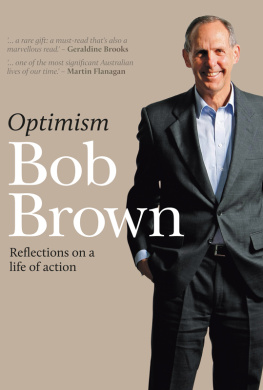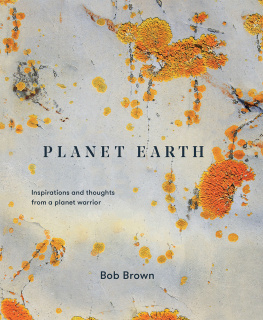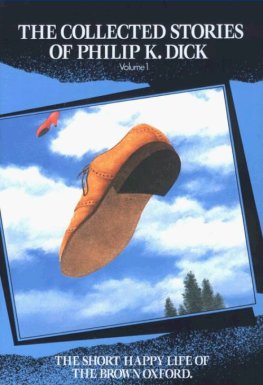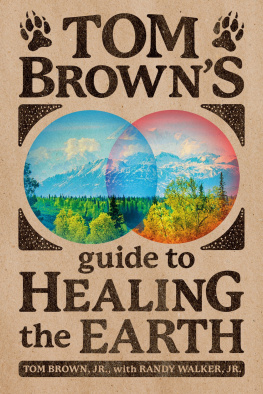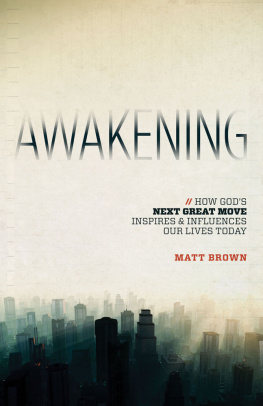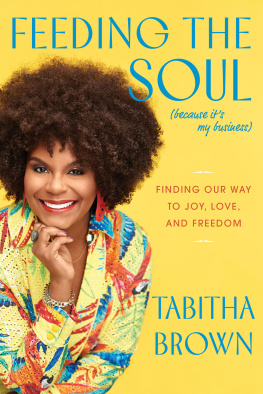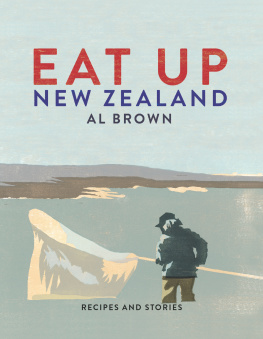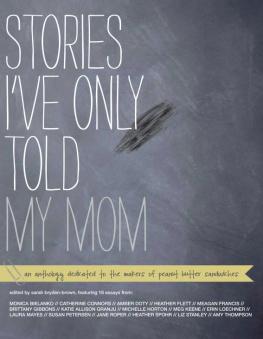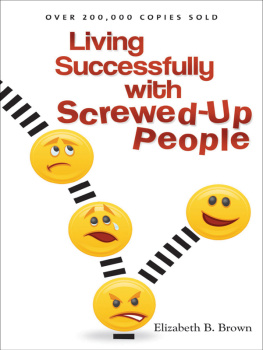
TO ROSARIO GODOY A ND BEN OQUIST
Contents
OPTIMISM, LIKE PESSIMISM, feeds on itself. In my earlier years I spent a decade or more deeply pessimistic and depressed. Even though it was a reasonable reaction to the way the human world malfunctions, it wasnt an enjoyable way to live.
These days I am an optimist and I like it. It is also a reasonable option because optimism is a key ingredient for any successful human endeavour and isnt keeping Earth viable the greatest endeavour we can ever undertake?
Theres a hitch, though. The twentieth-century philosopher Bertrand Russell, much reviled by the British establishment, put it in a nutshell: The trouble with the world is that the stupid are cocksure and the intelligent are full of doubt!
We dont know what the future holds but we can be sure that leaving it to stupidity which is almost always manifested in the inability to see beyond ones self and ones own times is a recipe for disaster.
Yet the intelligent are unsure. They weigh things up. They look beyond the here and now. They worry about legacy and about grandchildren and using finite resources wisely. They even consider themselves no more valuable than anyone else.
I have some simple advice for heavy thinkers: get over it. Mulling things over while the stupid and greedy ravage the planet is, after all, not very intelligent. Worse, it is a certain road to depression.
Get active rather than depressed. It worked for me.
In this book are some anecdotes from a life set for downfall that found its salvation in action. We have a choice and it is empirical: pessimism or optimism, stupor or action. Suit yourself.
Ive been lucky enough to meet remarkable people who are challenging the greed and small-mindedness of our age at risk to themselves, but with an unswerving and intelligent mission: that our global society should not be left to fail under this rampaging age of Materialism.
The contradictions of human society must be challenged: not least the fact that climbing the ladder of political power is easiest for those who care least about treading on other peoples fingers and faces. To put Russells dictum another way: the trouble with the global political arrangement is that the power falls most readily into the hands of the selfish, cruel and cocksure.
But it is no good feeling hopeless.
The challenge to intelligent, sensitive folk is to take over. To do that, the people must be won over. For that to happen, the megaphone message delivered by the captains of Materialism has to be contested and outdone.
Who knows the future of the biosphere? None of us.
But everywhere I go I run into people with the ambition and nous to create a future when the current pillaging of Earths living resources will be ancient history.
It is exciting to be with them taking up the challenge to bring on an era of a truly sustaining relationship with the one planet that hosted us into life and that, if we get it right, will host our kind into a magnificent future.
I am writing this at Boolcoomatta, in the arid lands of South Australia, west of Broken Hill. Here are 65,000 hectares of Earth in recovery. The sheep (up to 85,000 were shorn each year in the woolshed a stones throw from my desk) have gone, the saltbush and mulga are returning, and kangaroos and emus once again dominate the plains.
Yesterday Paul and I watched eagles taking off from and soaring above the rocky pinnacles to the west of this homestead: safe, sure and forevermore out of danger from the guns and traps of the last century.
This is Bush Heritage Australia country dedicated to its own ancient natural ecosystem, funded by intelligent, caring people and corporations who find uplift in the idea of restorative ecology, and a new action-oriented reverence for the living planet.
Two nights back we sat on a hilltop far from here, awaiting the end of a total eclipse of the Moon by Earth. We watched Earths shadow move very slowly off the Moon, from right to left, in a place where Aboriginal Australians have celebrated this interconnectedness between the Sun, Earth and Moon for thousands of years. Below us was a large round boulder: the Moon on the hillside. Near the boulder, on creekbed red rock, were multiple circular etchings of the Moon.
We will not, short of the complete destruction of society as we know it, return to such reverent depictions of the solar system. But we cannot go forward without appreciating Earths unique place in that system that affords us all we are and have. That appreciation, asserted and enacted, despite the sneering and perhaps violent opposition of the current moguls, will be the worlds salvation.
In the Senate I had the following words printed on the back of my business card:
| Caring | We champion |
| Optimistic | future generations |
| Defiant | and life on Earth |
| We strive for peace democracy | in all its brilliance. |
| and a fair go for everyone. | The future is Green. |
Here are some stories from my journey to this simple philosophy for happiness.
BOB BROWN
BOOLCOOMATTA, 19 APRIL 2014
I SET OFF one Saturday afternoon in November 1973 to drive from Launceston to the Liffey Falls, at the top of the remote upper Liffey Valley (as a contemporary Launceston Examiner story about a drug bust described it). While up there, I saw an old-fashioned white cottage tucked in under the towering dolerite cliffs of Drys Bluff.
A year earlier, having crossed from the mainland to Tasmania by ferry for a three-month job in a Launceston medical practice, I had sent a postcard to my parents back in New South Wales: I am home. They seemed happy that their son had settled down, at least geographically.
Now, as I drove back from the falls, old Frank Page was putting his cows over the gravel road. I stopped, wound down the window and asked if there were any properties for sale in the area. Frank, his weather-beaten face the picture of country kindness, said, Well, no. He added, Though the white house up the road was for sale. I think it was sold this week.
I had that feeling you get when the person you have suddenly fallen in love with turns and stares you gently in the eye and says, Im seeing someone else.
Repressing waves of disappointment, I turned the car around and drove back up the valley. I walked across the rustic bridge over the swirling Liffey River and up the long-grass paddock to the white cottage. The owners, John and Stephanie Dean, also showing the essence of country kindness, confirmed the sale but added, The buyers wife is coming up from Hobart to see the house on Tuesday. Late on Tuesday John phoned me with the news that the buyers wife had taken one look and said, Im not going to live in a dump like that.
Someone elses dump was my delight. The cottage, along with 10 hectares of vibrant forest and meadow and nearly a kilometre of riverbank, cost me $8000. The barred bandicoots, rare sweet-faced bettongs, ruby-eyed white goshawks and boobook owls were included, gratis. I called it Oura Oura (pronounced Oo-ra Oo-ra), after the Aboriginal girl who, it is said, took a red feather from a young French sailor on Tasmanias southern shore two centuries ago. Oura Oura is also Palawa (Tasmanian Aboriginal) for black cockatoo.
With Fran Newman, a good friend from Sydney University medical school days, I spent the 13th and 14th of December 1973 at Oura Oura in a mood infused with euphoria. Here was a warm cocoon, an envelope of intense contentment. At Liffey, the windows on the wider world became opaque.

